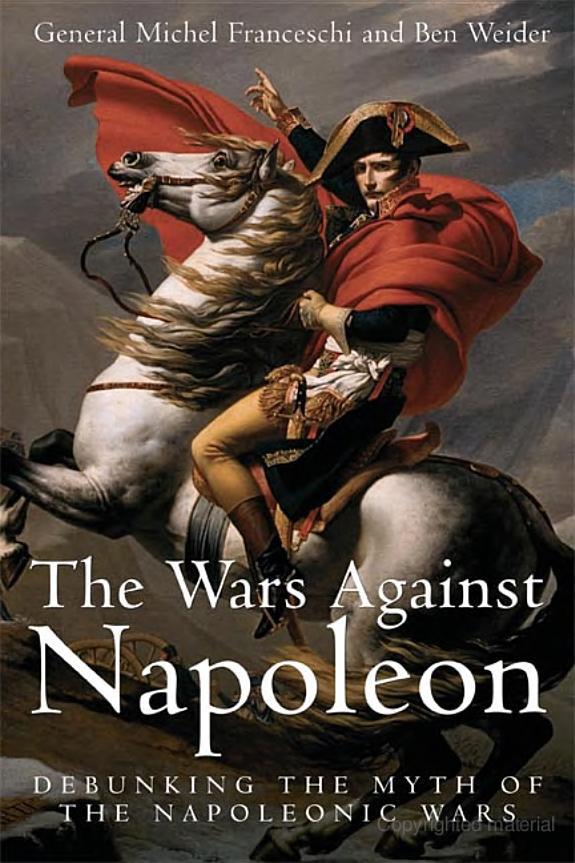
Wars against Napoleon
Debunking the Myth of the Napoleonic Wars
کتاب های مرتبط
- اطلاعات
- نقد و بررسی
- دیدگاه کاربران
نقد و بررسی

December 3, 2007
Franceschi, a retired French army officer and special historical consultant to the International Napoleonic Society (INS), and Weider (The Murder of Napoleon
), a businessman and founder of the INS, seek to recast Napoleon Bonaparte as a “peaceful creative genius”—even a “pacifist”—in this provocative apologia. The authors set out to debunk the “myth” that Napoleon's “inexhaustible ambition” was responsible for the eponymous wars that marked his rule in France. Rather, the authors argue, Napoleon was not only “the person least responsible” but also the victim of Revolutionary France's enemies. The authors' favorite villain is the “warmongering” British, but they also apportion blame among Prussia, Spain, Austria and Russia. Napoleon's only ambition was the “great work of reconstructing France,” and “the unchanging foundation” of his foreign policy was “the principle of preventing war.” They also excuse him for French battlefield losses and attribute the Waterloo defeat to “the most inopportune of thunderstorms.” Franceschi and Weider's one-sided, revisionist defense of Bonaparte as “a sensitive soul” with a “pacifist disposition” promises to be controversial. Illus.

January 15, 2008
According to these authors, it is a myth of the Napoleonic wars that Napolon was a megalomaniacal conqueror who bled Europe dry in order to satisfy his insatiable love for war. Certainly, such is the most widely printed and accepted description of Napolon's motive. After all, history is written by the victors. In this book, however, retired French general Franceschi and Weider (coauthor with Sten Forshufvud, "Assassination at St. Helena Revisited") present a compelling revisionist portrait of Napolon as fundamentally pacifist. They base this on three sound themes: first, that the European monarchies were thoroughly opposed to the continuance of revolutionary France; second, that Napolon made constant determined efforts to avoid the inevitable conflicts; and third, that Napolon never declared war, as he himself stated in exile on St. Helena. In each of these areas the authors argue strongly, persuasively, and intellectually for what is, essentially, the other side of the usual story. They will surely provoke debate within the historical community wherever there is interest in this period. Recommended for all libraries adding to their Napoleonic collections. (Illustrations not seen.)David Lee Poremba, Keiser Univ., Orlando, FL
Copyright 2008 Library Journal, LLC Used with permission.

























دیدگاه کاربران